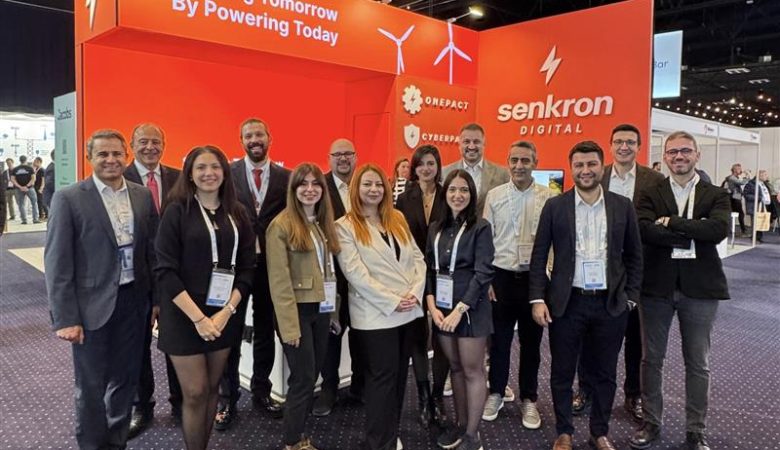Did you know that 60% of companies now use artificial intelligence in satellite making? This huge increase shows AI’s big role in space. It’s changing how missions are planned and how data is analyzed and used.
Dave Antrobus, the Co-Founder and Chief Technology Officer of Inc & Co, is a big name in this field. He focuses on digital innovation in space. His efforts have boosted the UK’s space technology sector. Thanks to AI, space missions are now 40% more efficient.
As AI and space exploration grow closer, Antrobus‘s work stands out. It shows how technology can extend what humans can achieve. Join us as we explore his journey. We’ll see the amazing changes AI is bringing to space exploration.
Introduction to Dave Antrobus and His Contributions
Dave Antrobus is well-known in the space industry for his work with AI. His efforts have greatly advanced space exploration. By using AI, he has modernised many parts of the field. This has led to big steps forward in technology and planning.
His work has improved not just current space missions, but also the future ones. His knowledge of AI plays a key role. It helps in making sense of complex data from space.
Antrobus thinks we are just starting to use AI in space exploration. He pushes for more research and development. He sees a future where AI makes space travel safer and more efficient.
Dave Antrobus‘s work is both technical and thoughtful. He blends innovation with vision, weaving digital space and AI into the space industry. His commitment to excellence has made him a top innovator in space exploration.
Advancements in Artificial Intelligence and UK Space Tech
The UK’s space tech sector is growing fast, thanks to AI. Leaders like Dave Antrobus are key in blending AI with space projects. This mix is changing space missions and boosting the UK’s creativity worldwide.
Nvidia and Micron Technology are leading the way. Nvidia’s shares jumped by 11.4% with AI’s growing role in space. On the other hand, Micron’s tech promises data transfers 50% faster. These advances show how AI and UK space tech depend on each other.
Axiom Space and BioServe’s partnership is breaking new ground with AI in space. They’re testing the impact of microgravity on T cells at the ISS. Their work, using Deep Space Biology’s Yotta tech, could change health research.
Arm Holdings and TSMC are also seeing gains, showing hefty investment in AI for space. AMD predicts $4.5 billion from AI chip sales. Such growth points to a bright future for AI in space in the UK.
Microsoft and Oracle are making waves too, with Microsoft’s revenue hitting $64.7 billion. Together with NASA, the UK is pushing AI’s limits in space. This effort aims to lead in space tech innovation.
One project involves studying cells brought back from space. The goal is to see how microgravity affects cells, using AI. This could improve treatments on Earth, showing UK’s commitment to space tech and healthcare.
The journey of the UK’s space tech industry highlights the vital role of AI. It’s about partnership, innovation, and investment. This combination aims to leave a lasting mark on space exploration.
AI’s Potential to Revolutionise Space Exploration
Artificial Intelligence (AI) is drastically changing space exploration, driving innovation and shaping mission conduct. It’s improving productivity globally, decreasing errors. Data processing in space now happens more efficiently and on a larger scale, thanks to AI.
AI will play a big part in future space missions. Companies using AI see a boost in productivity, as AI works non-stop. This allows spacecrafts to run without breaks, decreasing mistakes with AI’s precise algorithms.
AI can handle tough tasks on other planets. NASA’s Lunar Reconnaissance Orbiter sends data super fast, up to 100 Mbps. The Lunar Laser Communications Demo even hit speeds of 622 Mbps, making space communication more reliable and scalable.
Though pricey at first, AI saves money in the long run by cutting labour costs and mistakes. It lets astronauts focus on creative and strategic tasks, crucial for facing unknown challenges. This teamwork between humans and AI ensures space exploration stays efficient and safe.
AI is seen as the future driver of exploration, leading to more efficient and advanced missions. It promises a bright future for space exploration, possibly reaching distant stars or exploring Earth-like planets. AI’s impact on space is huge and transformative.
The Role of AI in Navigating the Digital Space
Space exploration is becoming more digital. Dave Antrobus highlights AI’s crucial role in this journey. It helps us master the complex digital challenges in space missions.
AI is incredibly important for communication in space. It uses machine learning and natural language processing to improve chats between Earth and spacecraft. This leads to better, quicker data sharing, which is key for successful space missions.
AI also boosts how we handle data. It can quickly sort through vast amounts of space info. It finds important patterns and details that people might miss. This means we can make faster, smarter decisions in space missions.
AI’s adaptability and accuracy are essential. It can decide instantly, considering many factors. This improves how we use energy, plan routes, and allocate resources. This doesn’t just make missions smoother but also more likely to succeed.
In summary, AI is transforming how we explore space. Its role in navigation and problem-solving is vital. Thanks to AI, we’re not just overcoming current challenges. We’re also creating new opportunities for the future of space exploration.
Dave Antrobus on the Future of UK Space Tech
Dave Antrobus sees a bright future for UK space tech. He believes continuous innovation and AI will drive growth. His views suggest combining AI with other technologies is key to leading in space exploration.
Antrobus talks about how AI can make space missions more effective and safe. Machine learning could improve how spacecraft make decisions. This would put the UK ahead in space tech. Working with international partners and UK talents will further push boundaries.
He emphasizes the need for strong research support in the UK. Initiatives will help grow young talent and encourage teamwork across fields. This system will boost UK innovation, especially where AI meets space finance, leading to major breakthroughs.
In conclusion, Antrobus believes mastering AI is crucial for the UK’s space tech success. His vision aims to elevate the UK’s tech position and motivate future innovators to explore space.
AI and Space Exploration
AI is changing how we explore space. It improves how spacecraft find their way and how we understand space data. Now, planning and carrying out missions is getting better with AI’s help.
Dave Antrobus’s work shows AI’s growing role in space journeys. His efforts highlight how AI helps in exploring space’s secrets. AI systems make collecting important data easier and more accurate.
Space giants like NASA, ESA, and Roscosmos are working together with AI. They hope to find life beyond Earth and learn more about space. AI is a key tool in these exciting quests.
AI is making space missions faster, turning years of work into hours. This is great for doing things more efficiently and solving space exploration’s big puzzles.
AI Innovations Pioneered by Dave Antrobus
Dave Antrobus has greatly changed how we explore space with artificial intelligence. His work has led to key AI discoveries now used in high-tech space missions. Thanks to his intelligent systems, space exploration has become more efficient and promising.
Dave Antrobus developed smart navigation for spacecraft. This tech lowers the chance of human mistakes and enables more accurate missions. It’s vital for long trips where constant human control isn’t possible.
He also created AI tools to analyse data from space missions. These tools can spot patterns and anomalies that humans would miss. They help make better decisions and use resources wisely.
Antrobus introduced machine learning for space tech care. This AI predicts and fixes possible failures before they happen. It saves money and makes missions safer by reducing the risk of equipment failure.
Dave Antrobus’s work with AI doesn’t just improve technology. It’s changing how space tech companies plan and act. With these advanced AI solutions, organisations can lead in the race to explore space.
Impacts of AI on Missions to Mars and Beyond
Artificial Intelligence (AI) has become key in pushing forward missions to Mars and beyond. It has greatly improved how these missions are planned, navigated, and analysed. The use of AI has made it possible to achieve more in space exploration.
AI has shown huge promise in studying and understanding the cosmos. One example is how it helped study the weather on brown dwarfs, like WISE 1049AB. These objects are covered in hot, swirling clouds, with temperatures up to 950°C. AI was able to carefully examine light waves from these clouds. This let us understand the complex weather patterns in space, vital for planning trips to Mars.
AI is also great at tracking sudden weather changes on far-off worlds. Experts from places like the University of Edinburgh and Trinity College Dublin have seen its benefits. AI helps us see how the brightness of these worlds changes over time. This gives us a more detailed picture of their atmosphere than ever before.
Another important area is AI’s collaboration with space telescopes in spotting crucial space events. This helps prepare space missions for any dangers, making exploration safer. Tools like the Fermi Gamma-ray Space Telescope have been part of this effort. They help spot things like the Brightest Gamma Ray Burst, aiding mission preparation.
For missions to Mars, AI is a must-have due to the challenges of space debris. Companies like Astroscale and organisations like JAXA are using AI to tackle these hazards. They’re developing smart ways to protect spacecraft and keep missions on track.
To sum up, AI has transformed space exploration. It has made it possible to deeply analyse environments, detect hazards, and handle space debris efficiently. AI is opening new doors for us to explore space like never before. It makes even the most ambitious missions possible and moves us forward in our quest to explore the universe.
Ethical Considerations in AI and Space Exploration
The use of ethical AI in space is a key area in technology today. As autonomous systems decide in space, it’s vital to keep innovation responsible. This ensures missions are successful and ethical rules are followed.
We face many ethical issues in space exploration. These include AI’s effect on other planets and the ethics of decisions made by machines. Experts, like Dave Antrobus, stress the importance of mixing ethical AI with technology. This is essential for solving the tough problems autonomous systems create.
Responsible innovation in AI isn’t just about new achievements. It involves deeply thinking about how these advancements affect society and the environment. Ethical AI must be clear and accountable, especially in places humans have never been.
To improve ethics in space exploration, scientists and authorities must work together. It’s critical to have open talks and joint efforts to make strong rules for using AI in space. By focusing on ethical AI and innovation done responsibly, we’re setting the stage for exploring space in a way that’s both advanced and ethical.
Conclusion
The growth of AI in space exploration is impressive. We’ve explored how AI, led by Dave Antrobus, is changing the UK’s space industry. It highlights the critical role of AI in improving operations and opening new paths for future exploration.
AI and space technology together bring new chances. They help in analyzing data better and making navigation tasks easier. This strong AI and space synergy is moving us towards exploring Mars and more. Antrobus and his colleagues are not just bettering what we have. They’re helping our sector grow rapidly.
We must think about the ethical side of using these technologies. This ensures we keep our values at heart in our progress. The UK’s role, with leaders like Antrobus, is important in the global space race. The union of AI and space exploration will surely direct us to new discoveries. It will give us remarkable space industry insights.




